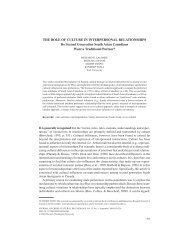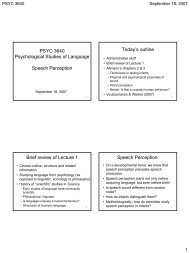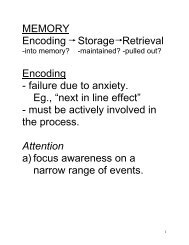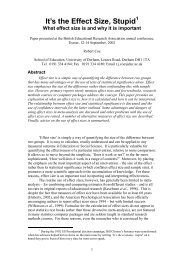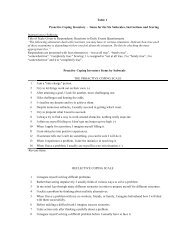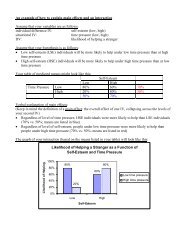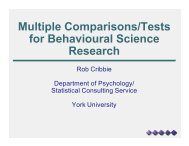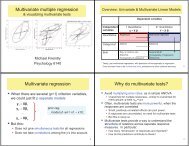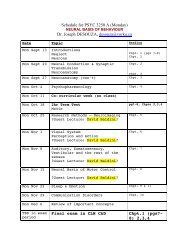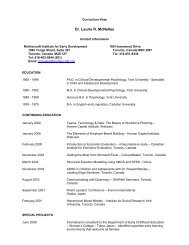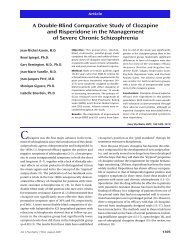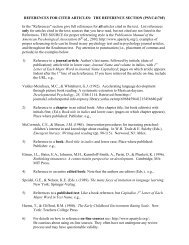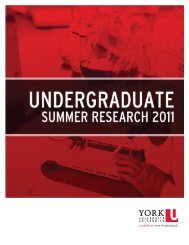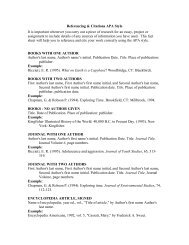The Drama of the Gifted Child (The Search for the True Self)
The Drama of the Gifted Child (The Search for the True Self)
The Drama of the Gifted Child (The Search for the True Self)
Create successful ePaper yourself
Turn your PDF publications into a flip-book with our unique Google optimized e-Paper software.
<strong>the</strong> history <strong>of</strong> his childhood and thus regained his sense<br />
<strong>of</strong> being alive—<strong>the</strong>n <strong>the</strong> goal <strong>of</strong> <strong>the</strong> analysis has been<br />
reached. Afterward, it is up to <strong>the</strong> patient whe<strong>the</strong>r he will<br />
take a regular job or not; whe<strong>the</strong>r he wants to live alone or<br />
with a partner; whe<strong>the</strong>r he wants to join a political party,<br />
and if so, which one—all that is his own decision. His life<br />
story, his experiences, and what he has learned from <strong>the</strong>m<br />
will all play a role in how he will live. It is not <strong>the</strong> task <strong>of</strong><br />
<strong>the</strong> analyst to "socialize" him, or "to bring him up" (not<br />
even politically, <strong>for</strong> every <strong>for</strong>m <strong>of</strong> bringing up denies his<br />
autonomy), nor to make "friendships possible <strong>for</strong> him"—<br />
all that is his own affair.<br />
When <strong>the</strong> patient, in <strong>the</strong> course <strong>of</strong> his analysis, has consciously<br />
repeatedly experienced (and not only learned from<br />
<strong>the</strong> analyst's interpretations) how <strong>the</strong> whole process <strong>of</strong> his<br />
bringing-up did manipulate him in his childhood, and what<br />
desires <strong>for</strong> revenge this has left him with, <strong>the</strong>n he will see<br />
through manipulation quicker than be<strong>for</strong>e and will himself<br />
have less need to manipulate o<strong>the</strong>rs. Such a patient will<br />
be able to join groups without again becoming helplessly<br />
dependent or bound, <strong>for</strong> he has gone through <strong>the</strong> helplessness<br />
and dependency <strong>of</strong> his childhood in <strong>the</strong> transference.<br />
He will be in less danger <strong>of</strong> idealizing people or<br />
systems if he has realized clearly enough how as a child he<br />
had taken every word uttered by mo<strong>the</strong>r or fa<strong>the</strong>r <strong>for</strong> <strong>the</strong><br />
deepest wisdom. He may experience, however, while listening<br />
to a lecture or reading a book, <strong>the</strong> same old childish<br />
fascination and admiration—but he will recognize at <strong>the</strong><br />
same time <strong>the</strong> underlying emptiness or human tragedy that<br />
lurks behind <strong>the</strong>se words and shudder at it. Such a person<br />
cannot be tricked with fascinating, incomprehensible<br />
words, since he has matured through his own experience.<br />
Finally, a person who has consciously worked through <strong>the</strong><br />
112



